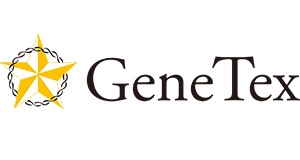Caspase 1 (cleaved Asp297) antibody
Caspase 1 (cleaved Asp297) antibody
Artikelnummer
GTX03738-100
Verpackungseinheit
100 μl
Hersteller
GeneTex
Verfügbarkeit:
wird geladen...
Preis wird geladen...
Application Note: WB: 1:500-1:2000. IHC-P: 1:50-1:200. *Optimal dilutions/concentrations should be determined by the researcher.Not tested in other applications.
Calculated MW: 45
Specificity/Sensitivity: This antibody detects endogenous levels of fragment of activated Caspase-1 resulting from cleavage adjacent to Asp297.
Form: Liquid
Buffer (with preservative): PBS, 150mM NaCl, 50% Glycerol, 0.02% sodium azide.
Concentration: 1 mg/ml (Please refer to the vial label for the specific concentration.)
Background: This gene encodes a protein which is a member of the cysteine-aspartic acid protease (caspase) family. Sequential activation of caspases plays a central role in the execution-phase of cell apoptosis. Caspases exist as inactive proenzymes which undergo proteolytic processing at conserved aspartic residues to produce 2 subunits, large and small, that dimerize to form the active enzyme. This gene was identified by its ability to proteolytically cleave and activate the inactive precursor of interleukin-1, a cytokine involved in the processes such as inflammation, septic shock, and wound healing. This gene has been shown to induce cell apoptosis and may function in various developmental stages. Studies of a similar gene in mouse suggest a role in the pathogenesis of Huntington disease. Alternative splicing results in transcript variants encoding distinct isoforms. [provided by RefSeq, Mar 2012]
Uniprot ID: P29466
Antigen Species: Human
Immunogen: A synthesized peptide derived from human CASP1(Accession P29466), corresponding to amino acid residues I280-V299.
Purification: Purified by antigen-affinity chromatography
Conjugation: Unconjugated
Full Name: caspase 1
Calculated MW: 45
Specificity/Sensitivity: This antibody detects endogenous levels of fragment of activated Caspase-1 resulting from cleavage adjacent to Asp297.
Form: Liquid
Buffer (with preservative): PBS, 150mM NaCl, 50% Glycerol, 0.02% sodium azide.
Concentration: 1 mg/ml (Please refer to the vial label for the specific concentration.)
Background: This gene encodes a protein which is a member of the cysteine-aspartic acid protease (caspase) family. Sequential activation of caspases plays a central role in the execution-phase of cell apoptosis. Caspases exist as inactive proenzymes which undergo proteolytic processing at conserved aspartic residues to produce 2 subunits, large and small, that dimerize to form the active enzyme. This gene was identified by its ability to proteolytically cleave and activate the inactive precursor of interleukin-1, a cytokine involved in the processes such as inflammation, septic shock, and wound healing. This gene has been shown to induce cell apoptosis and may function in various developmental stages. Studies of a similar gene in mouse suggest a role in the pathogenesis of Huntington disease. Alternative splicing results in transcript variants encoding distinct isoforms. [provided by RefSeq, Mar 2012]
Uniprot ID: P29466
Antigen Species: Human
Immunogen: A synthesized peptide derived from human CASP1(Accession P29466), corresponding to amino acid residues I280-V299.
Purification: Purified by antigen-affinity chromatography
Conjugation: Unconjugated
Full Name: caspase 1
| Artikelnummer | GTX03738-100 |
|---|---|
| Hersteller | GeneTex |
| Hersteller Artikelnummer | GTX03738-100 |
| Green Labware | Nein |
| Verpackungseinheit | 100 μl |
| Mengeneinheit | STK |
| Reaktivität | Human, Mouse (Murine), Rat (Rattus) |
| Klonalität | Polyclonal |
| Methode | Immunofluorescence, Immunohistochemistry (paraffin), Western Blotting, Immunocytochemistry |
| Isotyp | IgG |
| Human Gene ID | 834 |
| Wirt | Rabbit |
| Produktinformation (PDF) | Download |
| MSDS (PDF) |
|

 English
English







